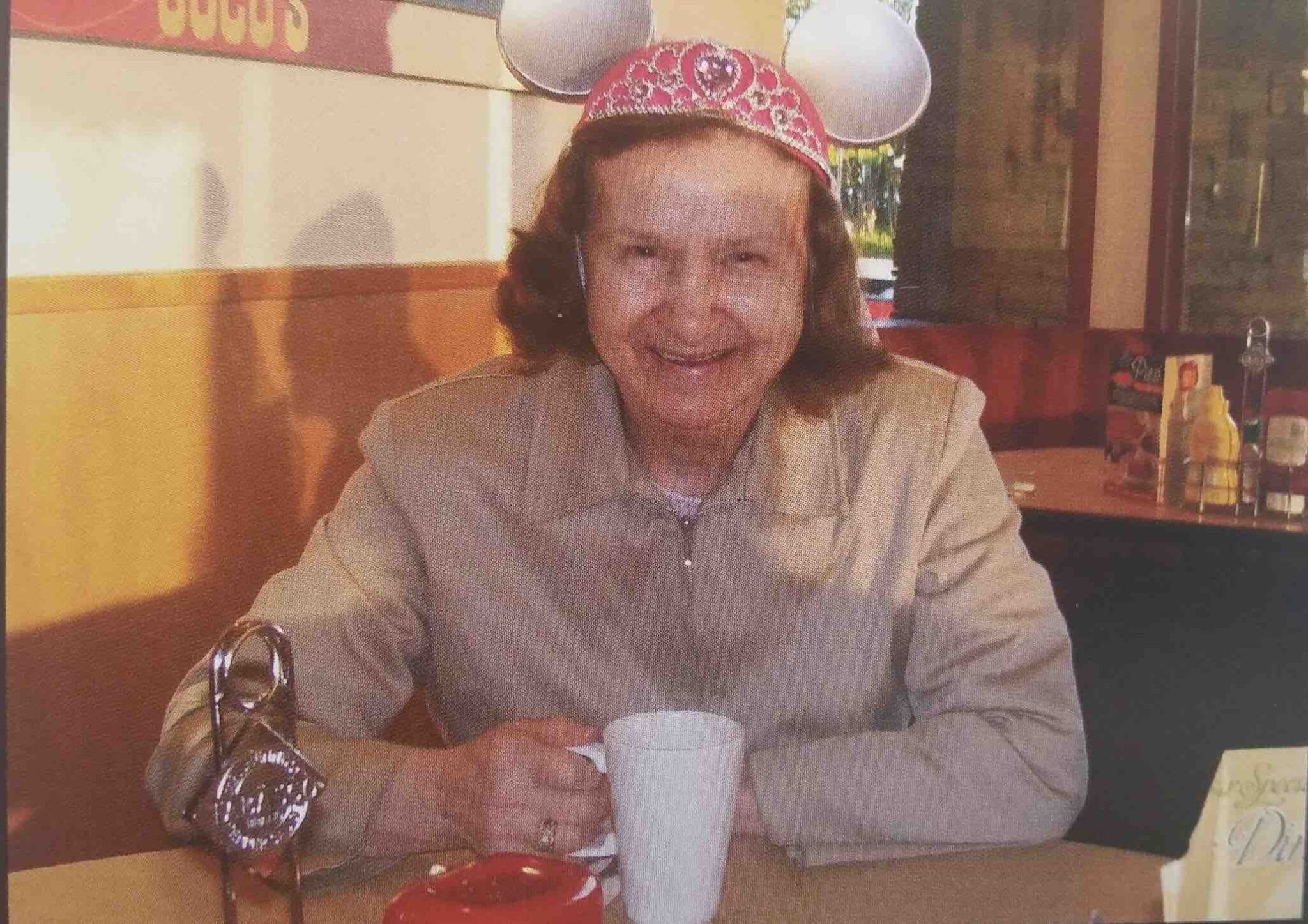Marlene Jaxon

The challenge of making mom laugh not only sparked my creativity, but also my spontaneity: both were necessary for living in the present moment with her.
February 8, 2021
Marlene Jaxon was a caregiver to her mother with Alzheimer’s and the author of “Jinx!: Laughing in the Face of Alzheimer’s.”
During the six years I spent as caregiver to my mother, Jinx, I discovered laughter to be my greatest inner resource and most powerful survival tool for easing the daily challenges of her Alzheimer’s disease. To my complete surprise, she and I laughed more raucously together during those years than any other time in our relationship. I didn’t consciously intend to use humor as a strategy, but once I tapped into the things that still tickled mom’s funny bone, I found myself on a unique mission to find creative ways to make her laugh.
The health benefits of laughter are indisputable and well-known. The activation and release of “happy hormones” and neurotransmitters – dopamine, serotonin, and endorphins – reward the brain with a stress-relieving sense of euphoria. Laughing is indeed a universal human pleasure. But infusing laughter into my mother’s daily routine was no small undertaking since on any given heart-wrenching day, I found it much easier to cry than to laugh. It’s true that caring for a loved one with dementia does not readily go hand-in-hand with that of being a court jester.
My persistence paid off though, as the challenge of making mom laugh not only sparked my creativity, but also my spontaneity: both were necessary for living in the present moment with her. Like children, people with dementia live in the “now.” The more childlike Jinx became, the more easily she laughed. I found that to be a sweet, silver lining to mom’s illness, and I took full advantage of it by concocting ways to make those moments as wonderful as possible for her – even if they couldn’t be memorable. The daily playfulness that ensued naturally brought out the kid in me as well. As the author Deepak Chopra put it: “Laughter is humanity’s mechanism to escape suffering.”
Jinx’s favorite type of comedy had always been slapstick, pratfalls, simple sight gags, a pie or seltzer in the face, someone splitting their pants. I figured she’d still be amused by broad, physical humor, so I started purposely pretending to stumble, trip, or drop something (always with exaggerated expressions and movements) just for yucks. Mom loved it! All those years of watching I Love Lucy had served me well.

I soon realized I could divert her attention and ease her obstinate behavior through simple sophomoric silliness; basically, the same goofy things kids find funny, such as bathroom humor, burps, and armpit fart noises. The grosser the better. Snotty boogers, smelly butts, and doggie doo-doo were guaranteed laughs. Mom even enjoyed jokes about her droopy derriere and wrinkly elephant knees. I made sure to avoid sarcasm and adult subject matter, however, since dementia patients take words too literally for sarcasm to be funny and mom’s mental age was too young to comprehend grown-up (sexual/political) topics.
Some days it was hard to pinpoint which fueled my creativity more, mom’s gleeful giggles or the sheer desperation to get my “child” to listen to me and follow directions. What do you do when your grown mother sticks her tongue out at you and adamantly shakes her head at repeated requests for a diaper change? You can’t send her to her room for “time out” or take away her TV time. The parenting techniques I’d used on my daughter years earlier proved useless.
Ultimately, out of necessity, I enlisted the help of some “friends.” The colorful cast of characters I invented to help coerce my mother into cooperating with me. Mom had always gotten the biggest kick out of hammy foreign accents, so the personalities I created were over-the-top, ethnic stereotypes (trés un-PC!).
Maggie was Princess Jinx’s English lady-in-waiting. She not only helped clean and dress mom but also gave her the royal treatment throughout the day. “Oh goodness Mum, don’t you look lovely!” My mother loved parading around the “castle” with Maggie, waving to the beloved subjects of her kingdom.
Literally overnight, my mother went from eagerly coming to the dinner table when called, to remaining on the couch in confusion. Her ‘deer in the headlights’ look told me she was struggling to process the meaning of my words, but they weren’t sinking in. Again, out of frustration, I conjured up another friend to assist me. The charming Frenchman, Francois, was one smooth talker and dancer. “Bonsoir, Madame,” he’d say as he kissed her hand. Then he’d gallantly help her to her feet and waltz her into the kitchen to eat.
The Asian nail salon lady originated from my failed attempts at trimming my mother’s fingernails. Every time I tried to clip them, she’d defiantly jerk her hand away. Pinning her down and forcibly manicuring the stubborn old mule seemed harsh. But my manicurist character’s sweet demeanor magically melted away mom’s anxiety.
Luigi, the Italian pizza maker, made his appearance at bedtime when mom usually resisted the final diapering of the day. She insisted “her fella” was there with her, perhaps creating embarrassment to be diapered in front him. Stubbornly planting her butt firmly on the edge of the bed, she’d stiffen her body and refuse to budge. It served no purpose telling Jinx her husband died years ago. How could she possibly comprehend such a thing? It was way more fun (and certainly less cruel) to distract her with Luigi’s antics.
Wearing an adult diaper atop his head as a chef’s toque, Luigi would toss imaginary pizza dough high into the air exclaiming, “Mama Mia! I will-a make-a pizza for you, Jinx!” The act yielded instant giggles and cooperation. And if Luigi happened to throw in a fake fart – so much the better!
Jinx didn’t actually believe funny foreigners were in her home. She knew they were me, as she played along. But each character momentarily transported her to a wonderful place, and due to the absence of short-term memory, she could enjoy each comedy routine as though seeing it for the very first time!